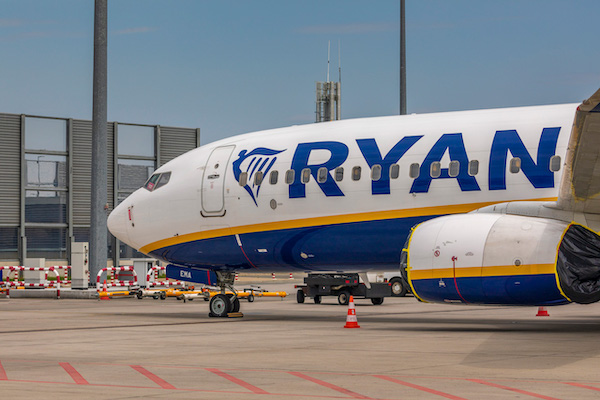News of agreements between Ryanair and Online Travel Agencies (OTAs) such as Love Holidays and Kiwi has caught the industry by surprise. Historically embroiled in disputes, this new development marks a significant shift in strategy.
Ryanair has been in a longstanding tussle with Europe’s leading OTAs, marked by legal confrontations and public spats. However, the recent agreements indicate a possible truce, albeit temporary, to optimize business outcomes amidst challenging market conditions.
The Genesis of Current Agreements
The recent agreements between Ryanair and OTAs are quite intriguing, given the history of legal skirmishes. For years, the airline and these agencies have been at odds, even during the pandemic, complicating customer services. The unexpected turn towards collaboration leaves industry experts speculating about potential strategic advantages.
Michael O’Leary, the outspoken CEO of Ryanair, has often criticized these OTAs, labelling them as “pirates”. Yet, the necessity to collaborate may stem from market pressures and the shared need to streamline operations and customer experiences.
Legal Battles and Market Dynamics
Ryanair’s legal battles with OTAs have been a persistent theme. In a notable development, On the Beach won a High Court ruling for refunds against Ryanair. This legal outcome emphasised the complexity of OTA-airline relationships and the impact on customer rights and market competition.
Despite the agreements, complaints persist with regulatory bodies, including the UK CAA, highlighting ongoing frictions. These agreements are not a cessation of hostilities but perhaps a tactical pause to address mutual challenges and navigate regulatory landscapes.
Potential Benefits of Cooperation
Both Ryanair and the OTAs stand to gain from these agreements. For Ryanair, increasing bookings through OTAs can rapidly expand market reach without exorbitant marketing costs. Meanwhile, OTAs benefit from securing access to one of Europe’s largest low-cost carriers.
The agreements may also serve as a foundation for improved customer relations, ensuring smoother service delivery by leveraging shared platforms for information. This coordination can potentially lead to enhanced customer satisfaction and loyalty.
Economic Factors Influencing Decisions
Ryanair’s financial performances have been under scrutiny, revealing reduced profits due to higher fuel costs and lower yields. Partnering with OTAs might be a strategic move to stabilise finances by boosting sales volume.
Economically, OTAs such as Love Holidays and Kiwi need these alliances to increase their own valuation and marketability. Being owned by private equity, there is immense pressure to demonstrate growth potential and return on investment, motivating further collaboration.
These financial and market considerations underscore the strategic nature of the recent agreements, placing economic priorities at the fore.
Future Outlook and Implications
The future of the Ryanair-OTA agreements remains uncertain, particularly given the volatile nature of past interactions. However, if successful, these agreements could set a precedent for similar collaborations in the industry.
Such collaborations could redefine competitive strategies, encouraging more airlines and OTAs to negotiate mutually beneficial arrangements, thus reshaping the travel industry landscape.
Ultimately, the success of these agreements will depend on the ability to balance competitive interests with cooperative benefits, ensuring long-term viability and customer satisfaction.
Regulatory and Customer Considerations
Existing tensions underscore the importance of regulatory oversight to protect consumer interests. Cooperation between airlines and OTAs can help resolve common issues like data sharing and customer refunds.
Regulators will likely continue to play a crucial role in mediating these relationships, enforcing compliance, and ensuring fair practice across the sector.
Conclusion
The Ryanair-OTA agreements signify a strategic shift driven by economic and operational necessities. As both parties navigate these new landscapes, their ability to harmoniously coexist will be critical to success.
These alliances may herald a new chapter in airline-OTA relations, potentially transforming how the industry operates and interacts with consumers.
The engagement between Ryanair and OTAs marks a pragmatic approach to resolving longstanding conflicts, driven by market demands and economic imperatives. This strategy could signal a transformative era in airline and OTA collaborations, contingent on continued cooperation and regulatory support.

